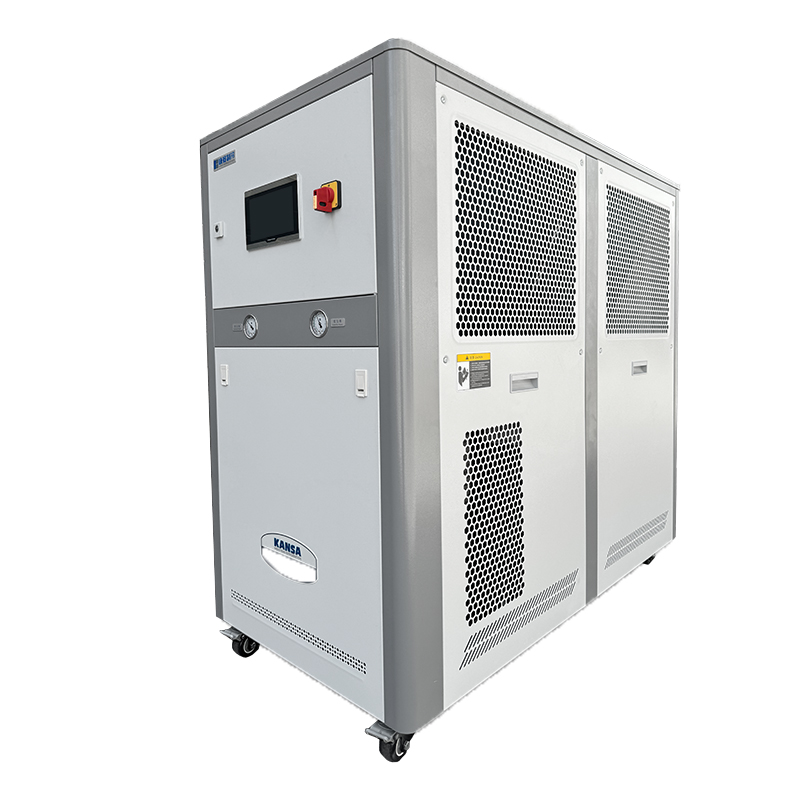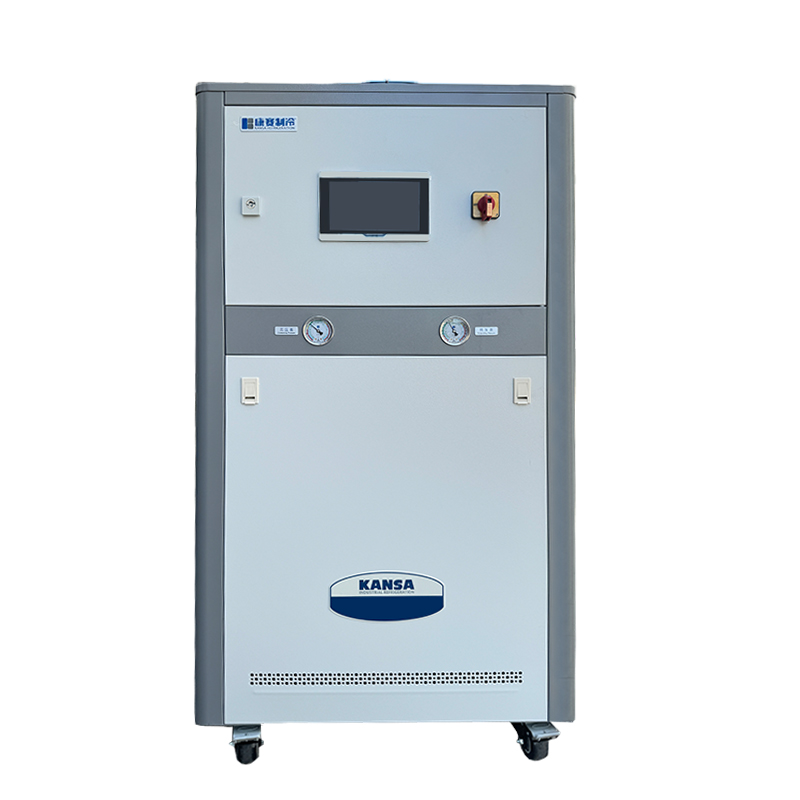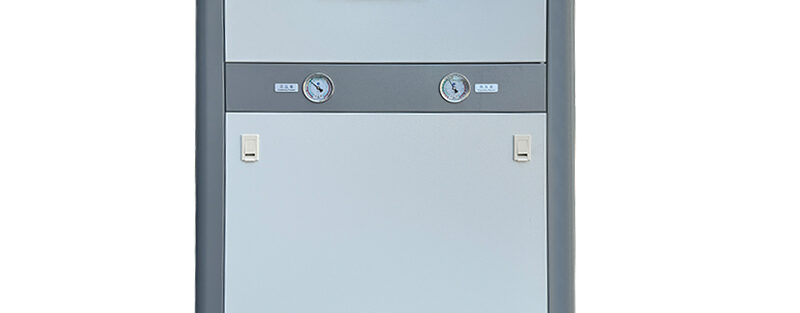The global shift towards clean energy and next-generation production has demanded next-generation thermal management technology. Water chiller systems are one of them that have been identified as the most imperative technology in responding to the optimal performance requirements of the majority of new energy applications. Special-purpose industrial water chillers supply precise cooling requirements for battery production, solar panel installation, and hydrogen energy equipment. The adjustable range of the temperature setting of the new energy temperature control unit is 0~100°C, which can bring efficiency, safety, and product quality improvement to such high-tech industries.

The Growing Importance of Thermal Management in Newly Embracing Energy Markets
As economies of the world evolve towards clean energy technologies, thermal management becomes more important. Thermal management is the primary cause behind most of the newly emerging energy processes, such as hot lithium-ion battery production, fuel cell operation, photovoltaic cell lamination, etc. These processes emit high temperatures. Poor cooling will lead to higher temperatures, which will:
- Decrease efficiency in energy conversion and storage systems
- Enhance the degradation of temperature-sensitive materials
- Safety hazards, e.g., thermal runaway in batteries
A high-performance water chiller system solves such problems by offering stable and precise cooling, keeping ideal thermal conditions for industrial processes.
Superlative Features of New Water Chiller Units
- Precise Temperature Control – New energy industrial water chillers deliver precise temperature control (±0.5°C), which is needed for chemical stability in battery production.
- Conservation of Energy – Eco-friendly refrigerants and variable-speed compressors minimize energy consumption, promoting green causes.
- Scalability – Modular design allows simple integration into growth production batches.
- Durability & Low Maintenance – Robust, corrosion-resistant materials and smart diagnostics maximize operating intervals.
Main Applications of Water Chiller Units for New Energy
1. Production of Lithium-Ion Batteries
Lithium-ion battery manufacturing has numerous processes that generate heat:
- Electrode Coating & Drying – Even cooling avoids thermal expansion deformation.
- Formation Cycling – Generates a lot of heat with charge/discharge tests.
- Cell Assembly – Avoids improper sealing and reduces battery cycle life by maintaining even temperature.
A 0~100°C new energy temperature control unit avoids even cooling defects and extends battery cycle life.
2. Production of Solar Panels
Photovoltaic (PV) manufacturing necessitates accuracy in temperature control for:
- Silicon Wafer Processing – Clean cooling prevents contamination.
- Lamination & Encapsulation – Adhesive melts and fuses with heat.
- Laser Cutting & Soldering – Cooling under temperature control maintains minimal micro-cracks.
New energy industrial water chillers ensure constant climates with maximum panel life and efficiency.
3. Hydrogen Energy & Fuel Cells
Hydrogen production (by electrolysis) and fuel cell use entail significant waste heat. Part of the significant cooling requirements are:
- Electrolyzer Cooling – PEM system overheat protection.
- Fuel Cell Stack Thermal Management – Performance and life uniformity.
- Hydrogen Compression & Storage – Minimization of energy loss in compressing the gas.
A 0~100°C water chiller unit should be supplied to guarantee system reliability.
Selecting the Right Water Chiller for New Energy Applications
When selecting a new energy temperature control device, pay attention to the following:
1. Temperature Range & Stability
- Ensure that the chiller supports operation over the entire 0~100°C range.
- Require ±0.1°C accuracy where accuracy is a requirement, e.g., for battery testing.
2. Cooling Capacity & Load Matching
- Estimate the peak load heat (in kW or BTU/hr) not to underspecify.
- Select variable-capacity chillers to accommodate variable loads.
3. Energy Efficiency & Sustainability
- Inverter compressors save 30% of energy.
- Low-GWP refrigerants are eco-friendly.
4. Smart Control & Connectivity
- Internet-of-Things (IoT) chillers have remote connectivity and predictive maintenance.
- Fault or loss of efficiency notifications automatically enhance operational reliability.
5. Customization & Integration
- Certain new energy industrial water chillers offer hybrid cooling (air + water) for multi-environment applications.
- Space-saving design allows for lower space in high-density manufacturing environments.
Future Developments in New Energy Refrigeration Technology
The new energy industry continues to advance with chiller units continuing to advance even further to address even larger demands:
1. AI-Powered Predictive Cooling
Machine learning provides for enhanced chiller performance through real-time information.
Predictive maintenance cuts time and maintenance costs.
2. Waste Heat Recovery Systems
New energy temperature control machines now utilize waste heat for building heating or as a second process.
3. Green Cooling Solutions
Absorption chillers (rather than electricity, from waste heat) are increasingly applied.
Phase-change materials (PCMs) enhance thermal storage efficiency.
4. Decentralized Cooling Networks
Small distributed water chiller units reduce energy loss in large plants.

Conclusion
The unprecedented entry of new energy and high-tech manufacturing brings the issue of efficient thermal management to the foreground. A good quality water chiller machine is no longer a luxury, but a strategic investment in order to guarantee efficiency, safety, and product stability for battery manufacturing, solar production, and hydrogen energy industries.
With an industrial water chiller with a temperature range of 0~100°C, companies can benefit:
Increased production output with fewer faults
Increased equipment life with accurate thermal stress
Less operating expense with efficient cooling energy
Environmental regulations compliance
Technological innovation will continue to push next-generation new energy temperature control units to extend precision cooling boundaries further, making even cleaner energy technologies possible.
Does your building have the right cooling technology to meet tomorrow’s demand? Tomorrow’s energy is smart thermal management—switch your systems to standby.




